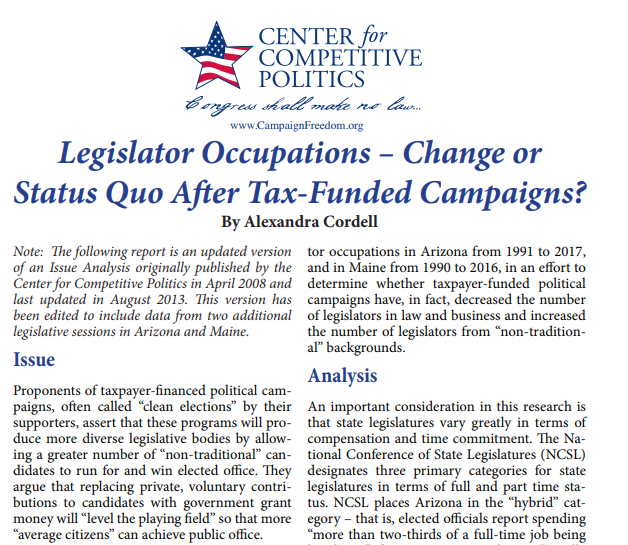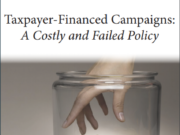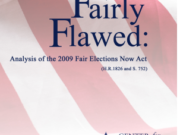Note: This report is an updated version of an Issue Analysis originally published by the Center for Competitive Politics in April 2008. This version has been edited to include data from three additional legislative sessions in Arizona and Maine.
Proponents of tax-funded political campaigns, often called “clean elections” by their supporters, assert that these programs will produce more diverse legislative bodies by allowing a greater number of “non-traditional” candidates to run for and win elected office. They argue that replacing private, voluntary contributions to candidates with government grant money will “level the playing field” so that more “average citizens” can achieve public office.
For example, Public Citizen, an organization that favors taxpayer-financed political campaigns, argues that “ordinary citizens who want to serve in government don’t have access to money and are locked out of the system…” Taxpayer-funded political campaigns are presented as a solution to this alleged problem by their advocates, such as Maine Citizens for Clean Elections, who believe these systems “encourage citizens from all walks of life to run for office…”
If taxpayer-funded political campaigns do in fact reduce roadblocks for “ordinary” citizens running for office, we would expect to see changes in legislator occupations in the two states that have operated such systems since 2000, Arizona and Maine. In particular, we would expect to see a reduction in the percentage of legislators from the “traditional” backgrounds of law and business after the implementation of taxpayer-funded campaigns. This research examines legislator occupations in Arizona, from 1991 to 2013, and in Maine, from 1990 to 2012, in an effort to determine whether taxpayer-funded political campaigns have, in fact, decreased the number of legislators in law and business and increased the number of legislators from “non-traditional” backgrounds.
https://www.ifs.org/wp-content/uploads/2013/08/2013-08-01_Issue-Analysis-2_Legislator-Occupations-Change-Or-Status-Quo-After-Tax-Funded-Campaigns.pdf














